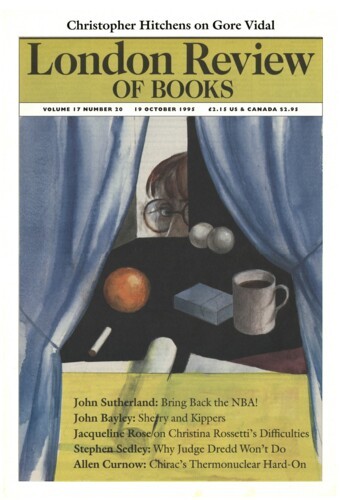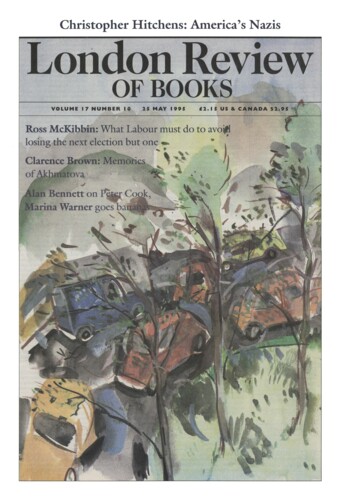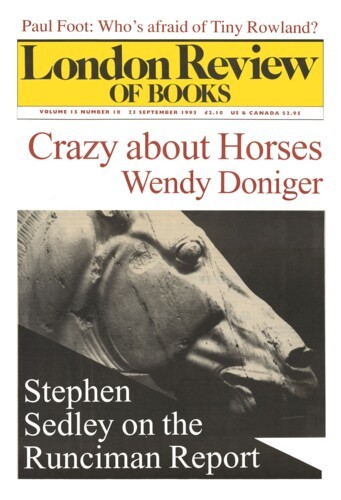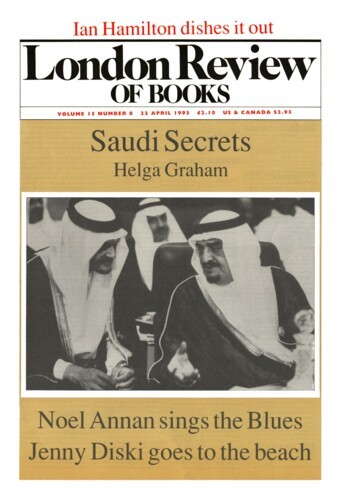Not Rough Enough
Tony Tanner, 19 October 1995
In 1911, George Santayana gave an address to the Philosophical Union of the University of California in which he sought to identify and define what he called, in his lecture title, ‘The Genteel Tradition in American Philosophy’. Santayana had a bracing view of what it was ‘to possess a living philosophy’ (‘to have a distinct vision of the universe and definite convictions about human destiny’), and in this talk, he outlined a schematic division, or opposition, in American philosophy, or ‘mentality’, which was to have a profound influence on subsequent American attempts at cultural self-analysis. ‘America’, he began,




